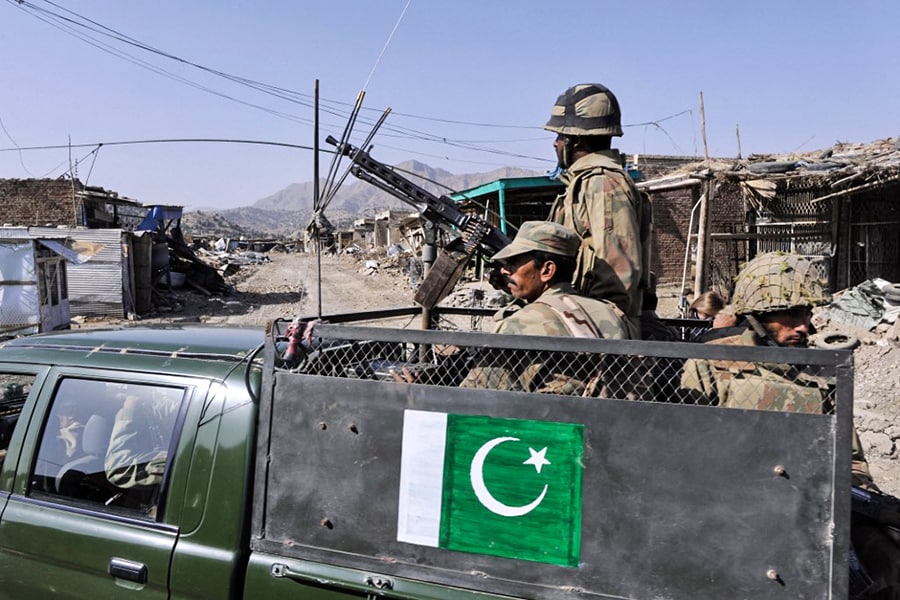
Biden's Afghan pullout is a victory for Pakistan. But at what cost?
A return of the Taliban to some form of power would dial the clock back to a time when Pakistan's military played gatekeeper to Afghanistan, perpetually working to block the influence of its archenemy, India
 Pakistani soldiers in South Waziristan, which borders Afghanistan, in 2009.
Pakistani soldiers in South Waziristan, which borders Afghanistan, in 2009.
Image: Aamir Qureshi / AFP
Near the peak of the American war in Afghanistan, in 2014, a former chief of neighboring Pakistan’s military intelligence — an institution allied both to the U.S. military and to its Taliban adversaries — appeared on a talk show called “Joke Night.” He put a bold prediction on the record.
“When history is written,” declared Gen. Hamid Gul, who led the feared spy service known as the ISI during the last stretch of the Cold War in the 1980s, “it will be stated that the ISI defeated the Soviet Union in Afghanistan with the help of America.”
“Then there will be another sentence,” Gul added after a brief pause, delivering his punchline to loud applause. “The ISI, with the help of America, defeated America.”
In President Joe Biden’s decision to withdraw all U.S. forces from Afghanistan by September, Pakistan’s powerful military establishment finally gets its wish after decades of bloody intrigue: the exit of a disruptive superpower from a backyard where the ISI had established strong influence through a friendly Taliban regime before the U.S. invaded in 2001.
A return of the Taliban to some form of power would dial the clock back to a time when Pakistan’s military played gatekeeper to Afghanistan, perpetually working to block the influence of its archenemy, India.
©2019 New York Times News Service




